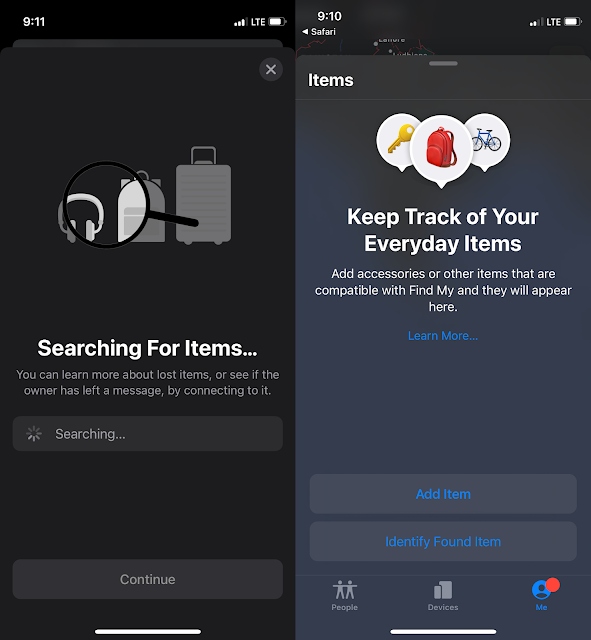Tech Roundup: Samsung Galaxy S21, WhatsApp Privacy Policy & More
[A recurring feature on the latest in Science & Technology.]
- Facebook-owned WhatsApp delays enforcement of its new privacy policy until May 15 in an attempt to "clear up the misinformation around how privacy and security works" on the messaging app; comes amid a surge in sign-ups for messaging competitors like Signal and Telegram.
- Samsung debuts Galaxy S21 Ultra (6.8" 120Hz AMOLED screen, a quad-rear camera with dual telephoto lenses for 100x zoom, and support for S Pen stylus for US$ 1,199), 6.2" Galaxy S21 (US$ 799), and 6.7" Galaxy S21+ (US$ 999) but removes charging adapter, microSD storage expansion, and magnetic stripe technology (MST) used to facilitate Samsung Pay transactions; announces Galaxy Buds Pro with a new design, active noise cancelation, an Ambient mode, and 360 Audio for US$ 200 and Galaxy SmartTag, a $29.99 Tile competitor that works only with Samsung Galaxy devices to help locate lost items.
- Google begins testing blocking news websites for a small number of users in Australia in its search results following Australian government's plans to make companies like Facebook and Google pay news outlets for news content which appears on their platforms.
- Amazon unveils Amazon Custom Assistant, which will let car makers build their own custom AI assistants with their own wake words, and custom voices; fixes security flaw in its Ring Neighbors app that exposed the precise locations and home addresses of users who had posted to the app.
- A group of health and tech companies, including Microsoft, Salesforce, and Oracle, band together to form a Vaccination Credential Initiative that aims to develop a COVID-19 vaccination "passport" that stores the encrypted digital copy of the immunisation credentials in a digital wallet such as Apple Wallet or Google Pay.
 |
| The new Samsung Galaxy S21 |
- The U.S. government adds Chinese smartphone manufacturer Xiaomi to a blacklist of alleged Chinese military companies, thereby restricting American investors from buying shares or related securities of the company; Xiaomi says that "it is not owned, controlled, or affiliated with the Chinese military, and is not a 'Communist Chinese military company'."
- Amazon faces new lawsuit, accusing the company of conspiring with five book publishers — HarperCollins Publishers, Hachette Book Group, Penguin Random House, Simon & Schuster, and Macmillan — to inflate the price of ebooks by charging high commissions and other costs, and signing a deal that mandates them to charge the books the same price as they do on Amazon everywhere else, thus preventing rival retailers from selling any of these publishers' ebooks at a lower price than on Amazon.
- Publishing and writing platform Medium acquires Glose, a social app for buying, reading, and discussing books; says "the vast majority of the world's ideas are stored in books and journals, yet are hardly searchable nor shareable, [and] with Glose, we want to improve that experience within Medium's large network of engaged readers and writers."
- Google begins piloting a new feature in the U.S. that allows creators to include shoppable items in their videos, allowing users to directly to directly purchase the products wihout having to leave the video service; pulls select personal loan apps from Play Store in India following reports that lending firms were targeting vulnerable borrowers in the country to offer instant loans and then using dodgy tactics to recover the money.
- 16 consumer rights groups in Europe and the U.S. urge regulatory action against Amazon for its use of dark patterns that add friction to the process of terminating a Prime subscription; calls the ecommerce giant's Prime unsubscribe process "manipulative" and "unreasonably cumbersome" and that "Amazon appears to go to great lengths in order to discourage the user from unsubscribing from Amazon Prime." (The full report "You can log out, but you can never leave" can be accessed here.)
 |
| A hidden tab in Apple's Find My app confirms Tile-like AirTags feature |
- Tencent Music acquires China-based Lazy Audio, which provides audiobooks, podcasts, and radio shows, for US$ 417 million from Shenzhen Lanren Online Technology Co, as it attempts to "bolster its content library in order to put it behind a paywall and add more paid users."
- DuckDuckGo surpasses 100 million daily search queries in a single day for the first time in 12-year-old history, months after the privacy-focused search engine began seeing more than 2 billion search queries a month on a regular basis in August 2020.
- Online dating and networking service Bumble files to go public, with plans to list on the Nasdaq stock exchange using the ticker symbol "BMBL."
- Apple reportedly in talks with content creators to launch a new subscription service that would charge people to listen to podcasts, ; said to have begun preliminary work on an iPhone model with a foldable screen, while testing an in-screen fingerprint reader for 2021, as well as two MacBook Pro models that feature a flat-edged design, MagSafe charging, and no OLED Touch Bar included, with the company instead returning to physical function keys.
- Far-right social network Parler, which was given the boot by Amazon Web Services (AWS) on January 10 in the wake of pro-Trump insurgents' attack on the U.S. Capitol building to try to overturn the presidential election results, comes back online after it transitions to Epik, an internet webhosting service that has harbored other deplatformed sites like Gab, the Daily Stormer, and 8chan (which it dropped in August 2019 following the site's connection to a mass shooting in El Paso, Texas).

Comments
Post a Comment